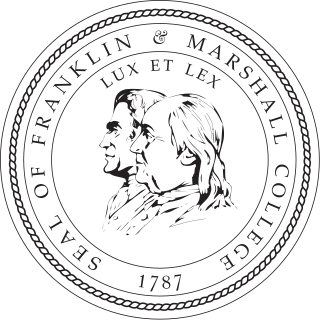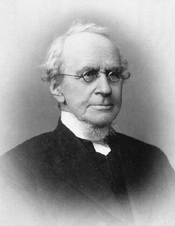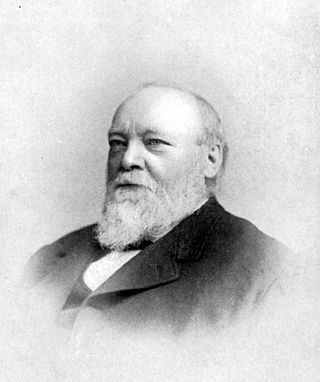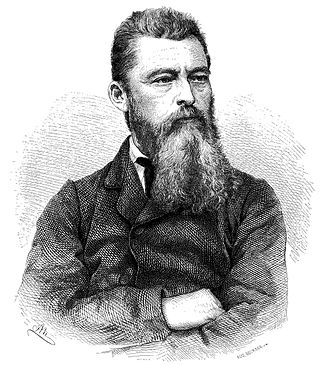Related Research Articles

Philip Schaff was a Swiss-born, German-educated Protestant theologian and ecclesiastical historian, who spent most of his adult life living and teaching in the United States.

William Findlay was an American farmer, lawyer, and politician. A member of the Democratic-Republican Party, he served as the fourth governor of Pennsylvania from 1817 to 1820, and as a United States senator from 1821 to 1827. He was one of three Findlay brothers born and raised in Mercersburg, Pennsylvania, on their family farm.
Mercersburg theology was a German-American theological movement that began in the mid-19th century. It draws its name from Mercersburg, Pennsylvania, home of Marshall College from 1836 until its merger with Franklin College in 1853, and also home to the seminary of the Reformed Church in the United States (RCUS) from 1837 until its relocation to Lancaster in 1871.

Franklin & Marshall College (F&M) is a private liberal arts college in Lancaster, Pennsylvania. Founded in 1853 on the merger of Franklin College and Marshall College, F&M is named for Benjamin Franklin, who gave the college its first endowment, and John Marshall.

John Williamson Nevin, was an American theologian and educator. He was born in the Cumberland Valley, near Shippensburg, Franklin County, Pennsylvania. He was the father of noted sculptor and poet Blanche Nevin.

The Evangelical and Reformed Church (E&R) was a Protestant Christian denomination in the United States. It was formed in 1934 by the merger of the Reformed Church in the United States (RCUS) with the Evangelical Synod of North America (ESNA). A minority within the RCUS remained out of the merger in order to continue the name Reformed Church in the United States. In 1957, the Evangelical and Reformed Church merged with the majority of the Congregational Christian Churches (CC) to form the United Church of Christ (UCC).

Lancaster Theological Seminary is a seminary of the United Church of Christ in Lancaster, Pennsylvania. It was founded in 1825 by members of the German Reformed Church in the United States to provide theological education for prospective clergy and other church leaders.

Samuel Simon Schmucker was a German-American Lutheran pastor and theologian. He was integral to the founding of the Lutheran church body known as the General Synod, as well as the oldest continuously operating Lutheran seminary and college in North America.
Emanuel Vogel Gerhart was an American minister of the German Reformed Church and first president of Franklin and Marshall College. Some consider Gerhart the systematizer of Mercersburg Theology. He wrote the first complete Christocentric theology in nineteenth century America.

Karl Joseph Hieronymus Windischmann was a German philosopher and anthropologist.
Franz Anton Staudenmaier was a Catholic theologian. He was a major figure in the Catholic theology of Germany in the first half of the nineteenth century.

Frederick Augustus Ludwig Karl Wilhelm Genth was a German-American chemist, specializing in analytical chemistry and mineralogy.

Charles Frederick Schaeffer was a Lutheran clergyman of the United States.
Charles William Schaeffer was a Lutheran clergyman and theologian of the United States.

Gottlob Frederick Krotel was a Lutheran clergyman of the United States.

Friedrich Wilhelm Krummacher was a German Reformed clergyman.
Martin Luther Stoever was a United States Lutheran educator and writer. His biographical work earned him the title of “The Plutarch of the Lutheran Church.”

Ludwig Andreas von Feuerbach was a German anthropologist and philosopher, best known for his book The Essence of Christianity, which provided a critique of Christianity that strongly influenced generations of later thinkers, including Charles Darwin, Karl Marx, Sigmund Freud, Friedrich Engels, Mikhail Bakunin, Richard Wagner, and Friedrich Nietzsche.
John Henry Augustus Bomberger was a German Reformed clergyman. He was president of Ursinus College, and did a translation and condensation of the Schaff–Herzog Encyclopedia of Religious Knowledge.

Henry Harbaugh was a Pennsylvania Dutch clergyman of the German Reformed Church.
References
- Rauch, Frederick A. (1841), Psychology; or, A view of the human soul, including anthropology, adapted for the use of colleges, New York: M.W. Dodd
- Rauch, Frederick A. (1856), The Inner Life of the Christian, Philadelphia: Lindsay and Blakiston
Attribution
- This article incorporates text from a publication now in the public domain : Wilson, J. G.; Fiske, J., eds. (1900). . Appletons' Cyclopædia of American Biography . New York: D. Appleton.